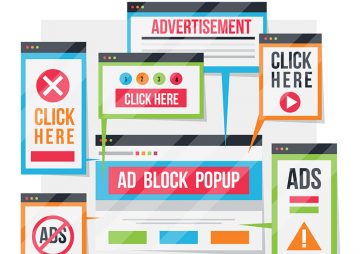First-tl Ads Are More Than Just Annoying: Here's What You Need to Know

Table of Contents
What Are First-tl Ads?
First-tl Ads refer to notifications and advertisements delivered by rogue websites under the "first-tl" domain. These websites, such as first-tl-139-d.buzz, are designed to trick users into enabling browser notifications that can then be used to display unwanted ads. These ads often promote unreliable content, redirect users to other questionable sites, and can lead to potential privacy or security issues.
When users visit a First-tl page, they are often prompted to enable notifications through various deceptive methods. One common trick is a fake CAPTCHA, where the website asks visitors to click "Allow" to verify that they are not a robot. If the user consents, they will start receiving intrusive notifications, even when they are not actively browsing the page.
What Browser Hijackers Do
Browser hijackers like First-tl Ads are threats that change how your web browser operates. Their goal is to redirect your browsing experience by flooding your screen with unwanted advertisements or taking you to other untrustworthy websites. This happens when users unintentionally give these sites permission to send notifications or make changes to their browser settings.
The First-tl group of websites doesn't change your browser settings directly, but by getting users to enable notifications, they essentially hijack the browser's notification system. These ads and notifications can be persistent, disruptive, and even dangerous if they lead to more harmful content.
The Purpose of First-tl Ads
The primary objective behind First-tl Ads is to generate revenue through online advertising. Many of these websites work with rogue advertising networks, which deliver deceptive content to users. Once a user is tricked into enabling notifications, these sites start sending ads promoting various unreliable services or products. Some of the advertisements might seem harmless at first but can lead to scams, identity theft, or financial loss.
While the ads themselves may not always be harmful, they are often designed to lure users into interacting with dubious content. In some cases, these ads may promote fake software updates, technical support scams, or adult content, which can further expose users to unwanted risks.
How First-tl Ads Are Related to Browser Hijackers
First-tl Ads are closely linked to browser hijackers in their operation. Both rely on misleading tactics to take control of certain browser functions. While browser hijackers typically change a browser's homepage or search engine or install unwanted toolbars, First-tl Ads manipulate the notification system.
The relationship between First-tl Ads and browser hijackers is clear: both are unwanted browser-based threats that interfere with the user experience. They are typically spread through malicious redirects, often triggered by clicking on ads from unreliable websites or downloading content from untrusted sources.
How First-tl Pages Trick Users
First-tl websites employ various methods to deceive visitors. These techniques range from simple clickbait to more elaborate ruses like fake CAPTCHA verifications. For example, when a user visits a First-tl page, they might encounter a message saying, "Press 'Allow' to confirm you're not a robot." This type of message can seem harmless, especially for users accustomed to encountering CAPTCHA verifications on legitimate websites.
However, by clicking "Allow," users are inadvertently permitting these rogue websites to send them notifications. These notifications will continue to appear even after the user has closed the website, disrupting their browsing experience and leading them to potentially harmful content.
Why You Should Avoid First-tl Ads
While First-tl Ads may seem like just another form of online advertising, they pose several risks. Users can be exposed to deceptive promotions, fraudulent schemes, and privacy threats. Even legitimate products or services that might be advertised through these notifications are unlikely to be endorsed by reputable companies. The ads are more likely placed by individuals looking to earn quick commissions through affiliate programs using unethical or unauthorized methods.
The result is a barrage of notifications that can become highly intrusive and annoying, with the added risk of leading users to more serious problems, such as exposing personal information or infecting the system with harmful content.
How to Manage and Block First-tl Ads
To prevent First-tl Ads from affecting your browsing experience, it's essential to be selective when granting permission for notifications. Many websites now request permission to send notifications, and it's easy to accidentally allow them if you're not careful. To avoid falling into this trap, always read notification requests carefully and avoid granting permission to sites that seem suspicious or unnecessary.
If you are already receiving First-tl Ads, you can remove the permission from your browser's settings. Most browsers allow users to manage which websites can send notifications, and you can revoke access for any site you don't recognize or trust. This is the most effective way to stop the ads from appearing without needing additional software.
Safe Browsing Practices to Avoid Browser Hijackers
It's important to practice safe browsing habits to minimize the risk of encountering First-tl Ads or similar threats. Only download software from reputable sources, and avoid clicking on advertisements from unknown websites. Be cautious when visiting unfamiliar pages, especially those that prompt you to click "Allow" for notifications. If something seems suspicious, it's better to deny the request and move on.
Finally, keeping your browser and operating system up to date can help protect against vulnerabilities that these rogue sites might exploit. By staying informed and cautious, you can enjoy a safer, more streamlined browsing experience.
Final Thoughts
First-tl Ads are part of a broader trend of browser-based threats designed to manipulate the way your browser works, using notifications to deliver unwanted advertisements. While they may not always cause direct harm, they can expose users to unreliable content and create an overall unpleasant browsing experience. By understanding how these sites operate and being vigilant about permissions, users can avoid the hassle and risks associated with First-tl Ads and similar browser threats.








